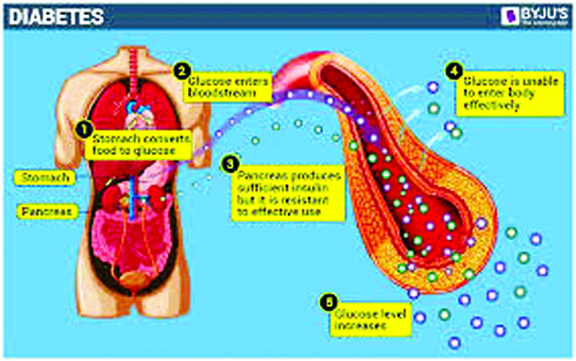Dr Yash Goyal
Jaipur (TIP)- There is alway a big question, is diabetes genetically inherited from one generation to another? Grandparents to parents and parents to their offsprings?
Now this belief is no more a mystery or confusion at any stage in human’s medical history and care ! As Indian and US endocrinologists made a breakthrough on this very hereditary disease. A joint exploratory research by Indo-US endocrinologists worked on Type-2 Diabetes (T2D) heritable in 3-Indian Endogamous Ethinc Groups (EEGs) representing Northern Rajasthan on an Agarwals, and Southern families of Chettiars in Tamil Nadu, and Reddys of Andhra Pradesh. The joint research conducted on 1547 respondents in the country by 18 experts (including 5 diabeticians of Rajasthan) showed that these 3-communities are prone to heritable Type 2 diabetes.
A new Indo-US bilateral Collaborative Research Partnership (CRP) was developed on genetics of diabetes research. This included Indian Council of Medical Research (ICMR), National Institute of Diabetes and Digestive and Kidney Diseases (NIDDK), National Institute of Health (NIH), and US’ University of Texas,and University of Okhlahoma. The research activities of this study were initiated after obtaining the project-specific Institutional Review Board (IRB) approvals in accordance with both the GOI and the US Regulations for protection of human subjects. It was granted and funded by National Institute of Health in USA.
The research paper titled ‘Burden of Type 2 Diabetes and Associated Cardiometabolic Traits and Their Heritability Estimates in Endogamous Ethnic Groups of India: Findings from the INDIGENIUS Consortium” has appeared in the international journal of “Frontiers in Endocrinology” .
Quoting a joint research paper, Jaipur’s renowned endocrinologists Dr Rajiv Gupta and Dr Sailesh Lodha said Indeed, Asia including the Indian sub-continent has become the epicentre of the escalating diabetes epidemic. Currently, India has the second highest number of people affected with diabetes worldwide next to China.
Quoting International Diabetes Federation (IDF), the duo experts said,”An estimated 77 million people (20-79 years) had diabetes in India in 2019, which is projected to be 101 million people in 2030 and 134 million people by 2045 year. Given its unique population genetic background and cultural history, the contemporary Indian population is composed of numerous sub-populations (tribal vs caste) with remarkable cultural, linguistic, regional and genetic diversity”. In a survey of 11 cities including Jaipur, the target of Agarwal population, the prevalence of T2D was found to be 15.7 percent (67) in middle class participants, which is comparable to other prevalence rates reported in the urban areas of Tamil Nadu at 15.5 percent and Andhra Pradesh at 15.1 percent states with Chettiars and Reddy families respectively.
The research study reveals that in Agarwals’ joint families (with 530 respondents in 25 families) the lower age group people have 37 % diabetes and 65 % are pre-diabetic. And there is a possibility that diabetes would be heritable in 82 percent Agarwals in the next generation. Whereas in Andhra Pradesh’s Reddy families (with 500 respondents and 22 families) the possibility of diabetes in the next generation is 46 percent, and in Chettiars (with 517 respondents in 21 families) the next generation would be around 30 percent. Thus T2 Diabetes heritable cases are more prone in Agarwals in Northern India, than in Southern states’ Reddys and Chettiars.
Dr Lodha told TIP that though Agarwals who were studied in Jaipur were very less addicted to liquor and smoking as compared to Andhra Pradesh’s Reddys and Tamil Nadu’s Chettiars, Agarwals have 37 percent diabetes, and of which 67 percent have obesity. Based on the facts, it is a warning for other Agarwals that if anyone in the family has even pre-diabetes symptoms, they should be more cautious on their health, lifestyle and food diets, Dr Lodha said.
The study recommended that the individuals/families from the EEGs who participated in the study should be advised to start diabetes prevention measures early in life, either in adolescence or early youth, with greater focus on healthy diet, physical activity, and weight maintenance. There are numerous EEGs in India and similar studies could identify more EEGs where earlier intervention may be highly warranted.
